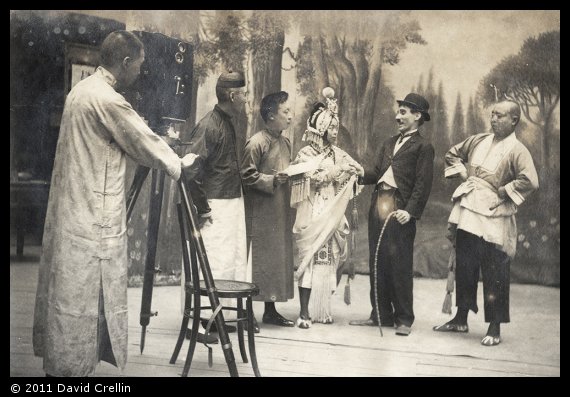Film Matters: Please tell us about your article that is being published in Film Matters.
Jasper Chen: “Westernization and Sinicization” is a historical research piece on the effects of Westernizing and modernizing influences on Chinese film in the early twentieth century. It explores how this tug of war between such influences and nationalistic, anti-imperialist sentiments played out in films, creating an imagined space to explore Chinese identity.
FM: What research and/or methodologies do you incorporate in your article?
JC: The information is all out there already, whether it exists in some prior journal or the actual primary sources themselves. The key to me was to compile all this knowledge and history, to view the subject from not only the angle of the Chinese filmmakers at the time but also what the U.S. film industry had to say about it. It’s safe to say that many hours were spent digging through bookstacks and archives to paint a holistic picture (and then condense it all into 3000 words).
FM: Describe the original context for/when writing this article while an undergraduate student.
JC: Everything I write comes from a personal place, whether that’s a story or a scholarly piece such as this. I was shocked at how little time we spent in class talking about early Chinese cinema and wished to research that on my own. What started as a comparative study of early cinema across East and West became a study of representation of the Oriental and then finally, a look at this complex relationship between Westernization and Sinicization.
FM: How has your department and/or institution supported your work in film and media?
JC: I reserve a special place in my heart for the Cinema & Media Studies department in the School of Cinematic Arts for the way it acts as a breeding ground for whatever your passion may be. It’s primarily a critical look into the film and media landscape today, but with that there is so much to delve into. There’s a sense of a freedom to create and express not only in the papers we write but in everything we do.
FM: How have your faculty mentors fostered your advancement as a film scholar?
JC: I’m sure many people see early film history as rather mundane or dull, but as is all history, it’s integral to look back to move forward. To understand context, to form a bigger picture, to place cinema in the entire historical backdrop and then to view our own stories and media landscape now in the same light is crucial not only to film scholars but also to anyone. A thirst for knowledge and an appreciation for history goes a long way.
FM: How has the Film Matters editorial and publication process impacted the development/evolution of your article?
JC: It’s been a wonderful experience corresponding with the people behind Film Matters and the thing I love most is the preservation of each individual voice and idea. On the magazine and on the website, there are a myriad of brilliant and insightful pieces coming from many, many eager and fantastic students. The way Film Matters celebrates this variety of thoughts about film and filmmaking is wonderful.
FM: What audience do you hope to reach with your Film Matters article and/or what impact do you hope it has on the field of film studies?
JC: I hope those like me who seek at least a little more understanding of Chinese cinema will find this piece informative. We don’t spend a lot of time learning about international cinema, and especially the history of a specific area’s cinema. I hope as our world becomes smaller, we don’t become more disconnected. I hope we sustain an interest in other cultures and ideas as they become more and more relevant.
FM: What are your future plans?
JC: I’ve always considered myself a storyteller, so to have this opportunity for publication is wonderful. In many ways, writing pieces like this is telling a story. But I hope to write more short stories and screenplays amid juggling a full-time job. I want to make films that speak to multiple cultures, that work on a universal level.
Author Biography
Jasper Chen is a recent graduate of USC’s film school, an avid writer and filmmaker seeking to tell universal stories. Having spent half his life in the States and the second half in Taiwan, he seeks to bring this bicultural perspective into telling untold stories and bridging cultures.




































